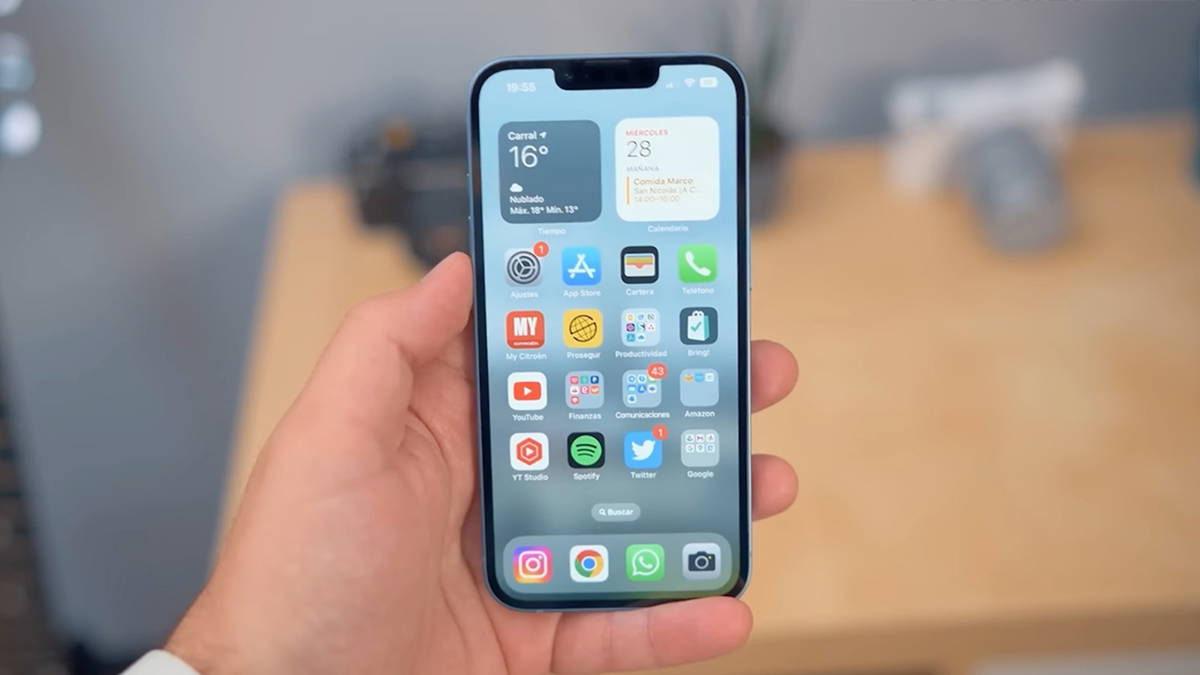Yesterday started The Epic Games lawsuit against Apple and its App Store. We are faced with a much anticipated face-to-face meeting between two large companies in their respective fields. Epic and Apple have released their legal arguments and opening remarks to the judge. So we can look at them and see where each candidate’s legal strategy is going.
The arguments of Apple and the App Store
Apple’s arguments against Epic Games begin with a slide from Steve Jobs. In it, you can read a sentence from the founder of Apple assuring that with the App Store, they intend to do two diametrically opposed things: create an open and secure platform which protects the user against viruses, malware and privacy breaches. As a result, only 1.72% of attacks by malware are produced on your platform.
It then indicates that developers have access to iOS, its app store and its intellectual property to create your applications. With the Metal API as an example of technology that allows better access to the GPU of Apple devices. They also mention in the preamble the model freemium enjoyed by Fortnite, Epic Games’ flagship game.
Apple continues its story by stating that Epic has started a secret project against the App Store’s 30% commission. Asked the company for an exclusivity agreement, which Apple and Epic refused, they also initiated their change in the payment system. Apple is arguing in bad faith because they also warned Microsoft about what was to come.

One of the arguments in favor of his commission is that the different stores opted for at least 30% before the appearance of the App Store. And later this is also the minimum percentage that other digital stores have had. But most of the arguments revolve around five statements.
Definition of the relevant market for Apple

There are five main arguments in the Apple camp. They revolve around the design of the relevant market, anti-competitive behavior, the effects of that behavior, pro-competitive justifications and the non-relation in the use of the IAP. Since there are too many to refer to in this article, we’ll focus on one of the most interesting: defining the relevant market.
For a company to be considered a monopoly, it is necessary that there is no substitute for its product and, therefore, that it has the power to decide its price.
In order to demonstrate the existence of a monopoly, it is necessary to define which market it refers to. If it is too wide, products that are not substitutes start to appear and it loses its meaning. If it’s too specific, these substitutes are left out and again, it ceases to be useful in analysis. Apple says arguments for classifying the App Store as a monopoly make no sense because Epic uses too narrow a definition of the market:

This graph represents the Fortnite income for each of the platforms it can be played on.
- There are several substitutes for playing Fortnite: iPhone, Android, PC, Mac, Nintendo, PlayStation, and Xbox.
- A survey indicates that 95% of users use devices other than their iPhone (Xbox, Nintendo, PC, Android phone and tablet).
- Fortnite has its game on multiple platforms, where iOS revenue is only 7%. PlayStation and Xbox make up almost 75% of the total.
- The vast majority of Fortnite players are not on iOS (around 10% before being deleted from the App Store).
- Epic itself announces that Fortnite can be played on multiple platforms as one of its main advantages.
- The in-game virtual currency (Epic’s revenue stream) is also cross-platform. A user can buy it on one device and spend it on another.
For Apple, properly delineating monopoly load is essential for the App Store. If we stick to the iPhone only, we define it narrowly, leaving out perfectly viable substitutes for a user. The App Store therefore has competitors, which come from the hand of other digital platforms on which Fortnite can be played and many other games. And furthermore, iOS wasn’t the primary or majority way of using Fortnite when it comes to accounting for revenue.
Epic Argumentos Iniciales by Eduardo Archanco on Scribd
What are Epic Games’ arguments against the App Store

The case presented by Epic Games is to open the App Store on the channel. The developer behind Fortnite is not only seeking to eliminate the 30% commission, but to wrest control of it from Apple. It’s a heist to see who controls software distribution on over a billion devices.
Epic wants to have its own App Store from which to distribute all of its games. According to its own rules and payment gateway

Fortnite claims the App Store exceeds 70% of operating margin and compares it to other online stores for physical products.
- Apple has built a fenced garden, to which it adds new features to increase the height. For this, it uses the terms from the license agreement to the developer, the ecosystem, iCloud and services like iMessage to hinder user leakage.
- iOS is based on macOS, so you can have the same security measures without being so restrictive. Apps from the Mac App Store, the web, and many other repositories can be installed on your Mac.
- Apple had no intention of making a profit from the App Store, in the words of Steve Jobs. Now Epic claims that exceeds 70% of operating margin.
- IAP, the integrated payment system, was born some time after the launch of the App Store as a way to get more revenue.
- Costs were not part of the decision to go for a 30% commission.
Epic is going after arguments that the App Store is secure and private, focusing on the issues of fraudulent apps and Apple’s practices of keeping the user in the ecosystem.
Epic also argues that the App Store is not a developer paradise as Apple portrays it. To do this, it uses the existence of scam apps and other successful clones. Often times, these apps deceive users and extract money from them to use them. While Apple reviews and retires these apps, it doesn’t always do so on time, and in some cases, some apps stay in the App Store without opting out.
During this week, Epic’s arguments against Apple will be heard. The next one is planned by the experts and the third will be for Apple and its leaders. Judge Gonzalez Rogers you will then have time to deliberate and make a decision in a key case for the future of the App Store.
Apple’s initial arguments by Eduardo Archanco on Scribd










